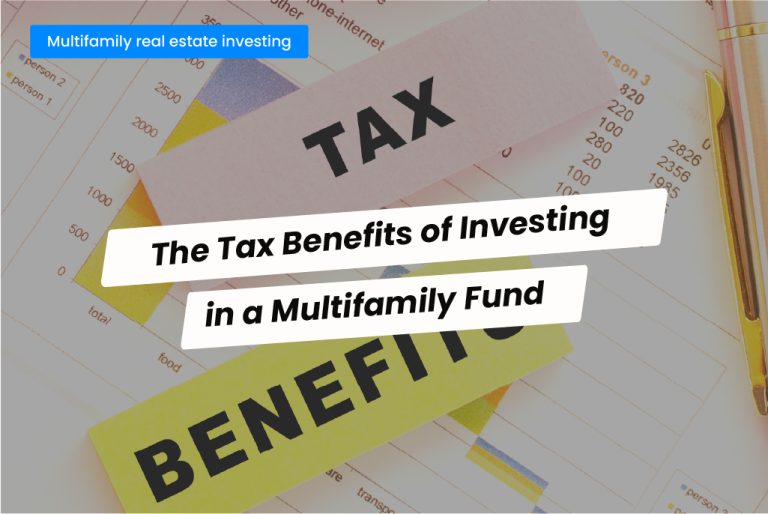Investing in a multifamily fund isn’t just a strategy for generating passive income and building long-term wealth—it’s also a powerful way to optimize your tax position. Real estate offers unique tax advantages, and multifamily funds bring those benefits to investors in a structured, professionally managed format.
Here’s a closer look at some of the key tax benefits that multifamily fund investors can take advantage of.
- Depreciation: A Tax Shelter for Your Income
One of the standout benefits of real estate investing is depreciation, which allows you to offset taxable income. Even though real estate assets tend to appreciate over time, tax laws allow investors to “depreciate” the property—treating it as though it’s losing value.
For multifamily fund investors, depreciation is typically passed through to them, enabling you to reduce your taxable income, often substantially. This “paper loss” is a powerful way to shelter the income generated by your investment.
- Pass-Through Deductions: Maximizing Returns on Passive Income
With the Tax Cuts and Jobs Act (TCJA) of 2017, real estate investors can often qualify for a pass-through deduction of up to 20% of qualified business income. Since multifamily funds typically generate passive rental income, this pass-through benefit may apply, allowing you to deduct a portion of your income from your taxable base.
- Cost Segregation and Accelerated Depreciation
Many multifamily funds take advantage of cost segregation studies, which break down property components (e.g., lighting, flooring) that can be depreciated at an accelerated rate. This practice allows fund managers to claim depreciation on certain assets over shorter timelines, sometimes as quickly as 5–15 years rather than the standard 27.5 years.
Accelerated depreciation benefits are often passed on to investors, enabling you to realize significant tax savings early in the investment period. This can be especially advantageous for investors seeking to maximize their tax deductions.
- 1031 Exchange Benefits: Deferring Capital Gains Tax
A 1031 exchange allows investors to defer capital gains tax when selling an investment property if they reinvest the proceeds into another “like-kind” property. Many multifamily funds make this process easy by rolling capital from sold assets into new opportunities, allowing you to defer taxes while staying invested.
For multifamily fund investors, participating in 1031 exchanges can mean potentially deferring capital gains taxes for years, even decades, which allows more capital to stay invested and grow.
- Tax-Deferred Growth in Retirement Accounts
If you invest in a multifamily fund through a self-directed IRA or solo 401(k), your earnings are tax-deferred until withdrawal. This means that all rental income, appreciation, and any tax-deferred gains accumulate without being taxed immediately, allowing your investment to grow more rapidly within the account.
- Long-Term Capital Gains Tax on Appreciation
Real estate is generally considered a long-term investment, and when multifamily funds are held for more than a year, the profits from property sales are taxed at the favorable long-term capital gains rate. This tax rate is usually lower than ordinary income tax rates, providing you with another advantage for maximizing post-tax returns on your investment.
Get More Out of Your Investment with Smart Tax Strategies
Investing in multifamily funds doesn’t just build wealth—it preserves it. The tax advantages, from depreciation to capital gains benefits, can make a significant difference in the growth and income potential of your investment.
Are you ready to take advantage of these tax-saving opportunities? Our team at [Your Firm’s Name] can guide you through the process and help you make the most of your multifamily fund investments.
Let us help you optimize your tax position and maximize your wealth. [Contact us] today to learn more.

